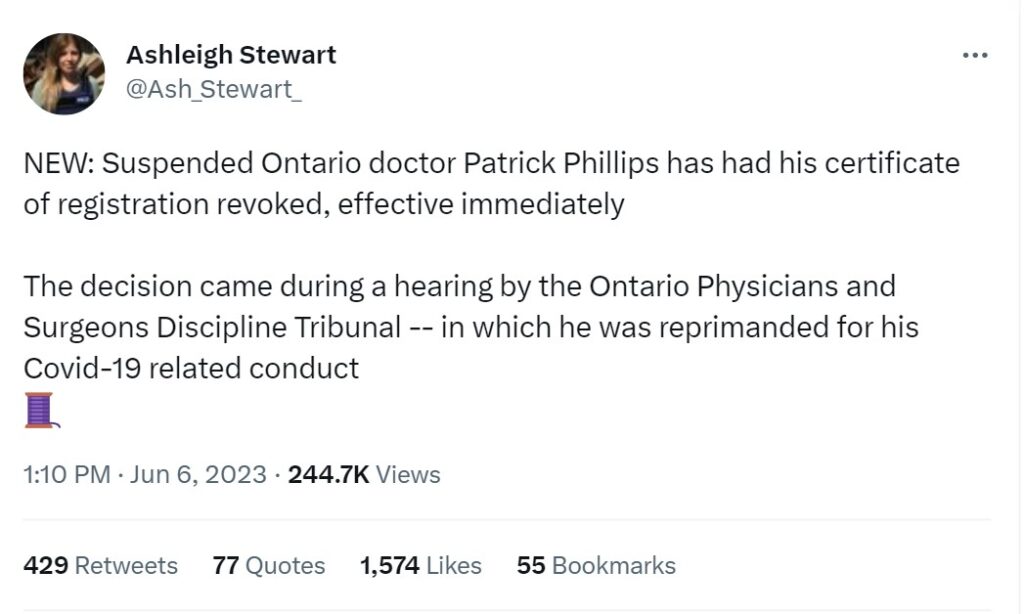@steve_boots 90 days seems to have come and gone #greenscreen #greenscreen #fyp #canpoli #steve_boots #foryou #skpoli #mbpoli #ontario #manitoba #sask #alberta #ab #ont #canada #ontpoli #saskatchewan #foryoupage
♬ original sound – Boots on the Ground
Category Archives: Article
Alberta’s healthcare: How are things going?
Read Jen Lee’s article for the answer.
Insurance won’t cover hospital bill in Florida

Imagine that you have been on vacation in Florida. While at the airport, awaiting your flight home to Canada, you suffer a cardiac arrest. You are rushed to a local hospital where you are treated.
Prior to embarking on your holiday, you confirmed that you had the necessary medical insurance. Therefore, when you were receiving medical treatment in the Florida hospital, you believed that all costs incurred would be covered by your medical insurance. Imagine your surprise when, upon submitting the hospital bill of over $600,000, you were told something very different. “‘Oh, we’re not paying “‘
Click here to read the news story.
Getting home from hospital guide & tips – H2H2H
H2H2H means Home to Hospital to Home. It’s a Provincial program meant to help improve the patient journey in “transitions of care”.
Going from home or facility to the hospital and back home, back to your shelter, and/or back to your family doctor is a big journey. Our healthcare system does not always transition us behind the scenes very well.
The “My Next Steps” guide can help patients take up their role as the central and key healthcare team member: https://www.albertahealthservices.ca/assets/info/hp/phc/if-hp-phc-phcin-mns.pdf
It’s also important to know your family doctor full name (correct spelling) and which clinic/city they are in. Did you know that? I didn’t. That’s if you even have a family doctor.
Hope this health tid bid helps 🙂
RKL
Short on Time?
Even if you are scrambling to get everything done on your To-Do List and think you cannot possibly do another thing, please consider taking a few minutes to read this article by David Climenhaga. It will be time well spent.
A hefty harvest for the Calgary Food Bank
Tuesday, September 26th saw retirees from TransAlta harvesting what is likely to be a record-breaking yield. All of the produce will be donated to the Calgary Food Bank.
According to Fred Ritter, coordinator of the Get Growing Garden project, “‘It becomes more satisfying that we can play a part and help the needy folks, given the rising cost of food and so on, and folks out there struggling to put food on the table.'”
Click here to read the full story.
Amplifying the Patient’s Voice
Martha’s Rule is a new policy that aims to give patients and the patient’s families greater voice in the the care their loved one is receiving without the fear of retribution or the like. Had this rule existed in 2021, perhaps Martha’s outcome would have been very different.
As Martha’s mother said, “‘I desperately wish that I’d felt able, with no fear of being the target of ill-temper or condescension, to ask for a second opinion from outside the liver team when I became concerned about Martha’s deterioration.’”
Click here to read about Martha’s Rule.
‘Everyone’s Someone’ to Me
In Alberta, there is much discussion taking place concerning addiction, overdose and treatment. Part of the reason for this because of how the provincial government has chosen to address these issues.
Not surprisingly, many people are not in favour of the direction the government is taking. One of these individuals is Bonnie Larson, a doctor who has worked with people experiencing homelessness for 15 years.

According to Larson, “Alberta’s model is unique in that it excludes harm reduction from the continuum of care. As such, it is a system akin to an extension ladder that is missing the first 10 feet of rungs. Lacking entry-level steps that meet people where they are with non-judgmental care, patient-centredness and barrier-busting pragmatism, the ROSC ladder is impossible for most to even mount, let alone climb.”
Please consider reading Larson’s article, “They’ll Always Be Everyone’s Someone to Me.” It is time well spent.
Addiction Mandate
“‘Right now in Alberta, six people are dying by drug poisoning every single day.'” https://globalnews.ca/news/9873164/alberta-addiction-mandate-involuntary-treatment/
Certificate of registration revoked

https://twitter.com/Ash_Stewart_/status/1666160665873055745
If you want to read the full Twitter thread, click here.


